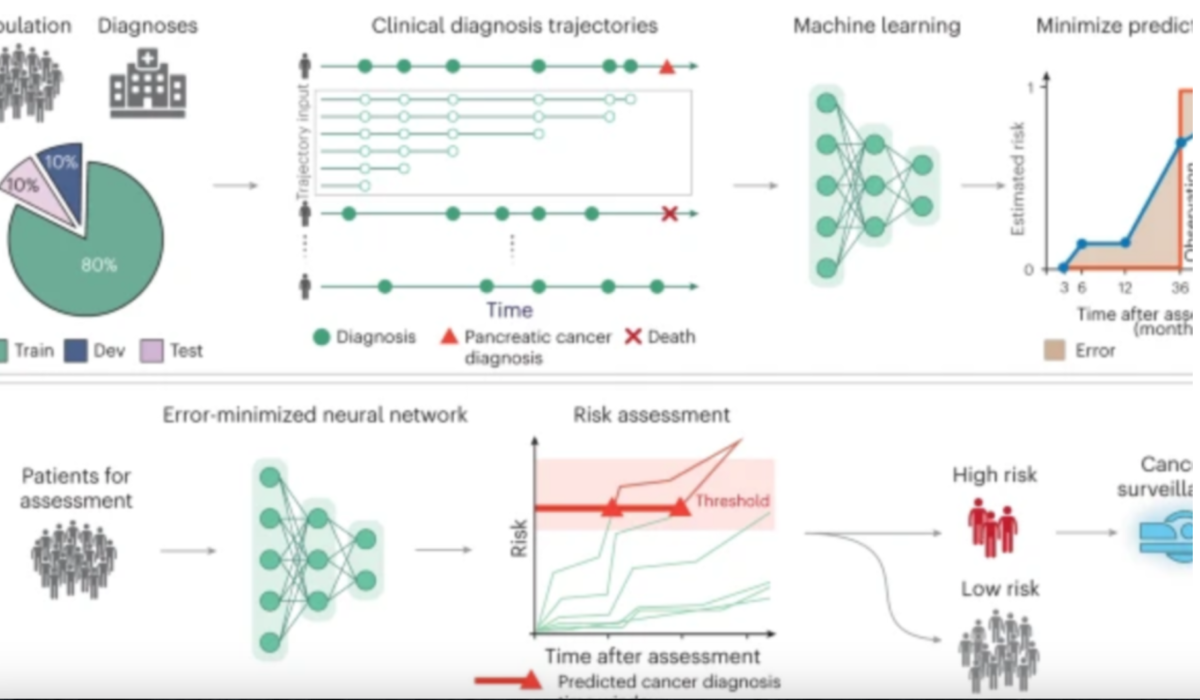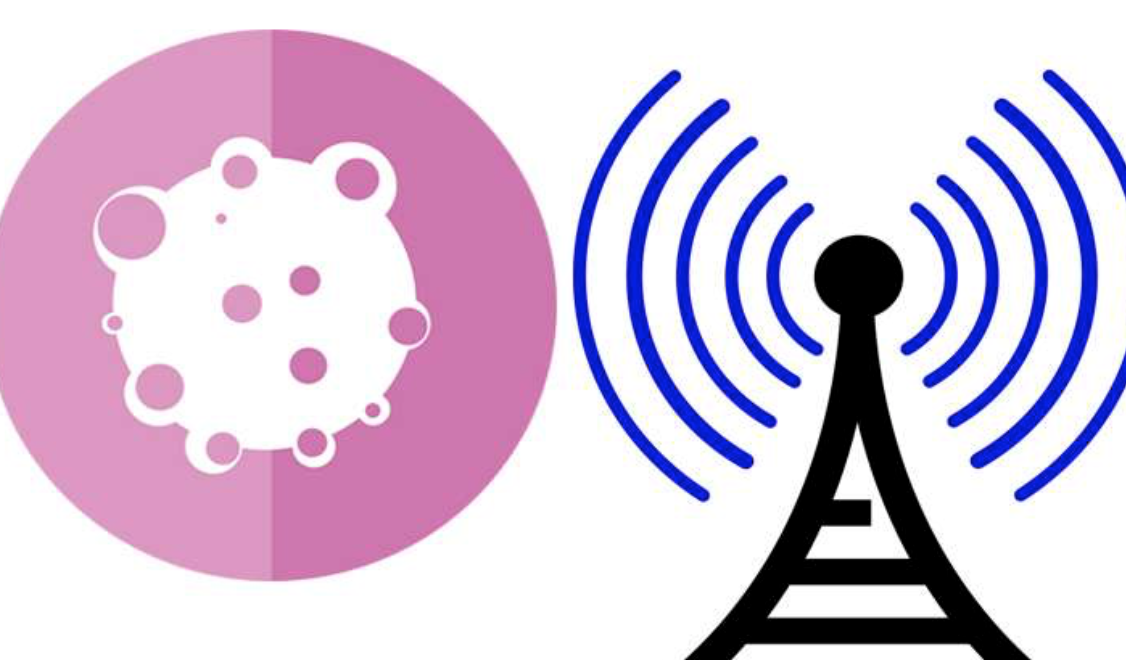Kun-Hsing Yu and HMS colleagues used AI to rapidly determine a brain tumor’s molecular identity during surgery, propeling the development of precision oncology. The tool is CHARM (Cryosection Histopathology Assessment and Review Machine.) Currently, genetic sequencing...
Cancer
Wearable ultrasound to detect early breast cancer
MIT’s Canan Dagdeviren has developed a flexible ultrasound patch that can be attached to a bra, obtaining ultrasound images with resolution comparable to medical imaging centers, and used repeatedly. Interval cancers, which develop between regularly scheduled mammograms,...
AI device increases ademona detection during colonoscopy
MAGENTIQ-COLO is an AI based FDA cleared colonoscopy device which offers a significant increase in Adenoma Detection Rate. Current high rates of missed and undetected adenomas during colonoscopy means that even regularly screened patients are...
AI predicts pancreatic cancer
Harvard professor Chris Sander used clinical data from 6 million patients in Denmark’s national health system and 3 million in the U.S. VA system to train an AI model to predict the occurrence of pancreatic cancer within 3,...
Implanted ultrasound allows powerful chemotherapy drugs to cross the blood brain barrier
Adam Sonaband and Northwestern colleages used a skull-implantable ultrasound device to open the blood-brain barrier and repeatedly permeate critical regions of the human brain, to deliver intravenous chemotherapy to glioblastoma patients. This is the first study...
MSK developed sensor detects molecular signature of cancer; compared to human scent
Mijin Kim and Daniel Heller of the Nanomedicine Lab at Memorial Sloan Kettering Cancer Center have developed an array of carbon nanotube sensors that can “sniff” cancer using AI. The human nose can detect a trillion different scents,...
AIgorithm detects cancer potential of pancreatic cysts
CompCyst is a proof-of-concept study, led by Anne Marie Lennon at Johns Hopkins, which uses AI to more accurately determine which pancreatic cysts will become cancerous. The test evaluates molecular and clinical markers in cyst fluids,...
Deep learning mammography model detects breast cancer up to five years in advance
MIT CSAIL professor Regina Barzilayand Harvard/MGH professor Constance Lehman have developed a deep learning model that can predict breast cancer, from a mammogram, up to five years in the future. The model learned subtle breast tissue patterns that...
Starving cancer stem cells as a new approach to glioblastoma
Luis Parada and Sloan Kettering colleagues are focusing on cancer stem cells as a new approach to glioblastoma. Like normal stem cells, cancer stem cells have the ability to rebuild a tumor, even after most...
Wireless system could track tumors, dispense medicine
Dina Katabiand MIT CSAIL colleagues have developed ReMix, which uses lo power wireless signals to pinponit the location of implants in the body. The tiny implants could be used as tracking devices on shifting tumors...









